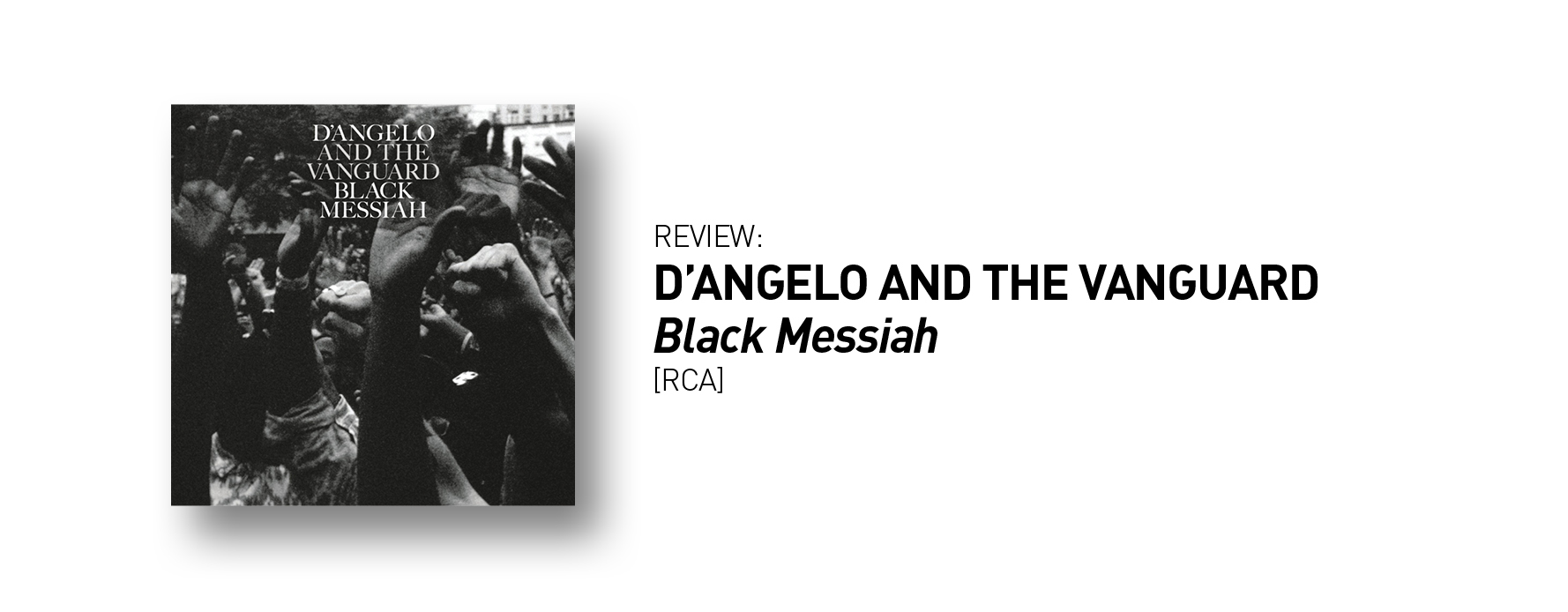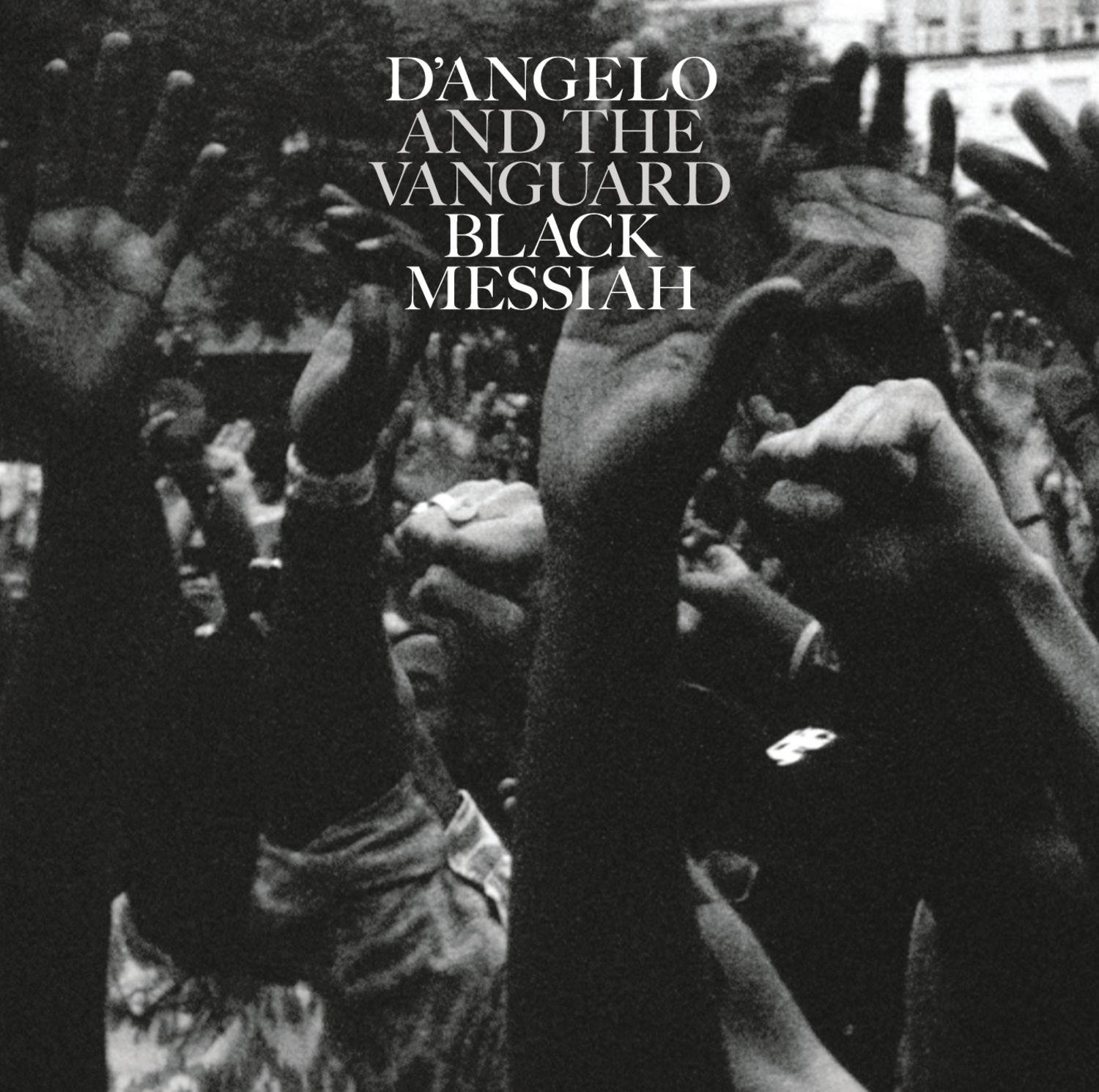D’Angelo and The Vanguard: Black Messiah
 Thirsty for JUICE content? Quench your cravings on our Instagram, TikTok and WhatsApp
Thirsty for JUICE content? Quench your cravings on our Instagram, TikTok and WhatsApp

Text Khalid Azizuddin
Thematic
D’Angelo’s innocuous prediction that “some will jump to the conclusion that I’m calling myself a Black Messiah,” in the album’s liner notes is noteworthy due to its apparent disconnect with current ongoing cultural narrative. Of course that would be the logical conclusion, how could it not be? From Jay Z’s ‘HOVA’ to Kanye’s ‘Yeezus’, contemporary music is but a gilded holding pen for minor deities. But where such outbursts were once confined to genuine talents (Beatles) and their lesser peers (Oasis), these caricatures are now symptomatic of a society desperate to share each other’s semi-coherent thought. We are Warhol’s children made in the likeness of our Facebook profile, and church is a live-streamed confession booth. The release of Voodoo in 2000 and Black Messiah in 2014 neatly bookends this pervading cultural shift, which is perhaps a more meaningful measure of time elapsed between the two rather than hours and days.
D’Angelo released Brown Sugar in 1995, a debut as musically proficient as it was accessible. Voodoo built upon the multi-tracked vocals – nuanced falsetto foregrounded in its predecessor – but compositionally, it far eclipsed Sugar. A grainy promo video from this time shows Eric Clapton incredulously asking “Is it all like this?” after a preview, with an audible exhale of the breath he was holding in. In the following years, D’Angelo had an elongated breakdown that was rigorously documented in all of its tedium and gore. A noteworthy episode involved a coke addled-D trying to solicit fellatio from an undercover NYPD Officer for USD40 (bang on market price). The death of legendary beatsmith J Dilla in 2006 spurred him toward sobriety and soon after, back to performing.
The release of the long gestating Messiah was brought forward from 2015 to 15 December ‘14, ostensibly as a tribute to ‘people rising up’ in the Ferguson protests, Occupy movements, and the Arab Spring. Despite its pretensions to contemporary relevance, nostalgia remains integral in D’Angelo’s process from the extended jams of soul standards to analogue recording/mixing to the Beatles-indebted reversed guitar solos. So far, so Voodoo. Aside from the scuzzy steel-toed shuffle of ‘1000 Deaths’, restrained contributions from different instruments create or imply the harmonies that ornament surgically loose-limbed grooves, resulting in a dense but uncluttered sound. Following this lead, lyrics are emotive yet restrained and ever in thrall to rhythm. In ‘Really Love’, D’Angelo chooses “I’m in really love with you” instead, avoiding the cardinal sin of an uneven meter. To his credit, the almost militant attention to detail does not detract from the organic flow and mood of Messiah.
This album comes at a time where the bulk of mainstream black music is overwhelmingly one-dimensional. Cartoonish depictions of love, wealth, and sexuality have been allowed to define the genre and permeate collective consciousness. Messiah offers thematically complex content, although not always easy to reconcile. An alternative to the adolescent priapism of Pharrell/Thicke et al., the outstanding ‘Sugah Daddy’ presents a revolving cast of characters: the lewdly nasal perv, the velvet-throated crooner, the winking cad – a Greek chorus tripping over themselves in pursuit of a beguiling temptress. Lyrics are utter filth, so something for everyone. This rubs shoulders with ‘The Charade’ and ‘1000 Deaths’, both of which overtly tackle African-American racial politics and maps out the despair and loss of dignity to all. The vocals for ‘The Charade’ are melodically stingy unlike its live performances. Perhaps it is a lesson from the past well learnt, being cute detracts from the message. And this is an important one.
But the content and character of Messiah presents its own challenges. The sub-one hour runtime results in jarring transitions between diverse subject matter. How are we meant to reconcile the spirituality of ‘Prayer’ and the last two lines of ‘Sugah Daddy’? Son of Pentecostal preachers or doped up coke fiend? Listen to Messiah and maybe these layers will allow themselves to be unpicked in the fullness of time.
![]()

 Get Audio+
Get Audio+ Hot FM
Hot FM Kool 101
Kool 101 Eight FM
Eight FM Fly FM
Fly FM Molek FM
Molek FM